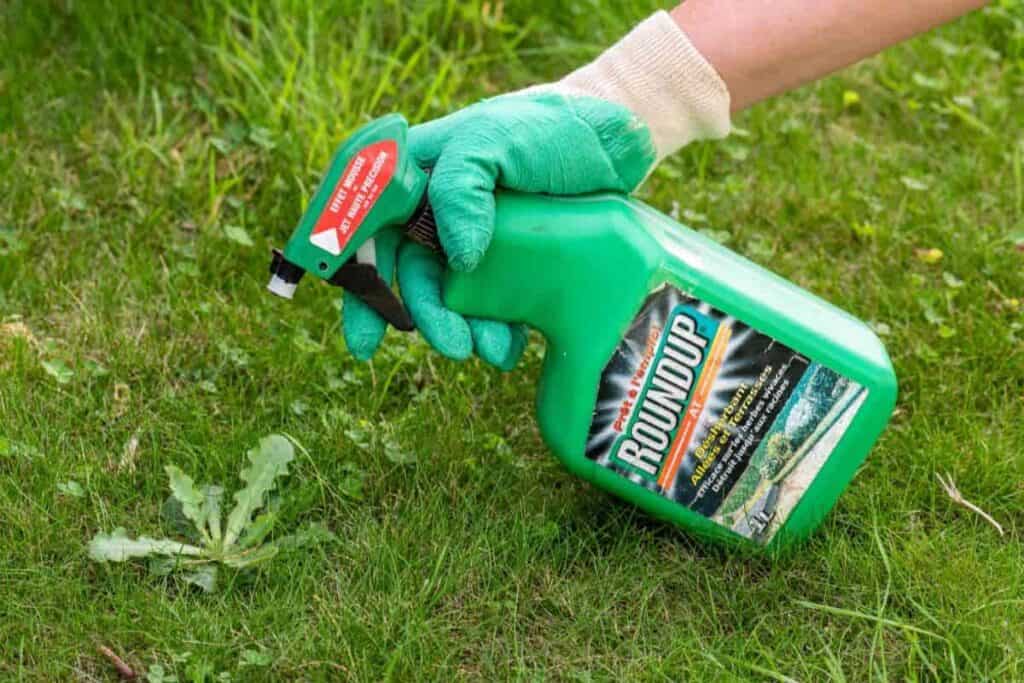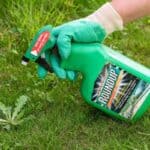Many ways have been tried to eradicate poison ivy. Spraying with chemicals appears to be the most satisfactory.

Of the many chemicals tried, ammonium sulfa-mate and 2, 4, and 5 Trichloroplienoxyacetic acids have given the best results.
Chemicals Poison Ivy Is Susceptible To
245
Poison ivy is very susceptible to 2, 4, 5 Trichlorophenoxyacetic acid, commonly known as 245, or 2, 4, 5-T, or 5-T.
This is one of the “growth substances” and, therefore, is effective in relatively small quantities and, like 2, 4-D, it is a selective weed killer.
It is noninflammable, noncorrosive, and nontoxic to animals. It is, however, very difficult to clean from a sprayer.
It is strongly recommended that any sprayer used for this material not be used for applying fungicides or insecticides.
If it must be used for fungicides or insecticides, fill it with 1% household ammonia solution, pump some through the hose and nozzle, and let it stand overnight. Then wash thoroughly with water.
Brush Killer
Also, a combination of 2, 4, 5-T with 2, 4-D, usually sold under the time name “brush killer,” may be used. The ester forms of these materials are the most effective and are most apt to cause trouble because of their volatility.
Ask for low volatile forms and do not use them too close to gardens or valuable shrubs. They may be applied at any time while the poison ivy leaves are fully expanded.
These materials can also be used in high oil concentrations (kerosene, fuel, or diesel oil) during the dormant season.
Dormant treatment is effective if all stems are sprayed. Small stems of poison ivy hidden in the grass may be missed without their leaves.
For this reason, summer treatment usually gives the best results. Time manufacturer’s directions should be followed as to dilution.
Ammonium Sulfamate
Ammonium sulfamate is a very good eradicant for poison ivy. It is noninflammable, nontoxic, very soluble, easily dissolved, and cleaned from a sprayer, but it is very corrosive on metals.
Immediately after use, the spray equipment should be washed thoroughly inside and out. Some baking soda or spray lime added to the rinse water helps.
It is nonselective and will severely injure or kill most sprayed plants. It is non-volatile and can be used close to gardens, provided spray drift is kept off valuable plants.
It is very toxic to peaches and cultivated blueberries and should not be used around these fruits. It can be used at 3/4 to 1 pound per gallon of water. The ivy should be thoroughly sprayed when the leaves are fully open.
44659 by Na
